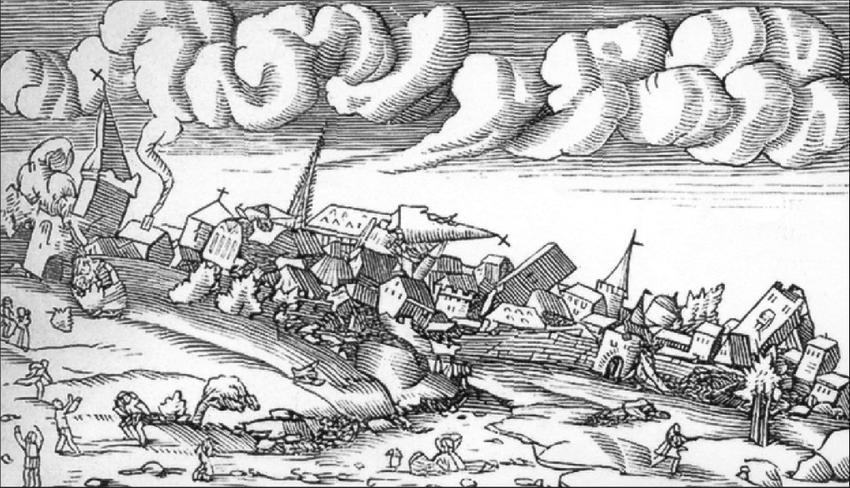Representing Crisis in Early Modern Literatures
A conference organized by the Institute of Philosophy of the Czech Academy of Sciences and the Literature Centre

Representing Crisis in Early Modern Literatures
A conference organised by
the Under and Tuglas Literature Centre of the Estonian Academy of Sciences
and
the Institute of Philosophy of the Czech Academy of Sciences
Tallinn, 21–22 September 2023
Venue: Under and Tuglas Literature Centre, Estonian Academy of Sciences
Kohtu 6, Tallinn
Call for Papers
Abstracts
Summary and overview of the conference in the journal Neulateinisches Jahrbuch
Photos of the conference
21 September
11:00–11:30 Initial greetings, Opening remarks
from the organizers Lucie Storchová and Kristi Viiding
from the head of Under and Tuglas Literature Centre of the Estonian Academy of Sciences, Jaan Undusk
from the Czech ambassador in Estonia, David Král
11:30–12:30 Keynote: Vladimír Urbánek (Prague)
Representations of Crisis in Chronological, Astrological and Theological Discourses: Comenius’s „Sorrowful“ and other Bohemian texts reflecting on the post-1620 developments
12:30–13:30 Lunch at the EAS
13:30–15:30 Session 1: Crisis and Early Modern Historiography
Chair: Lucie Storchová
Michael T. Lo Piano (Yale)
Narrating Crisis, Generating the Renaissance: Callimachus experiens’ De rege Vladislao and the Renaissance in Jagiellonian Poland
Péter Kasza (Szeged, Innsbruck)
Wolfgang Lazius on the Fall of the Hungarian Kingdom or Using Sallustius as a Model for Describing a Crisis
Gábor Petneházi (Budapest)
Divine Punishment and Daniel’s Dream: The language of history in Germany and Hungary in the 16th century
15:30–16:00 Coffee break
16:00–18:00 Session 2: Crisis and its Religious Contexts
Chair: Kristi Viiding
Astrid Nilsson (Lund), on-line
Living through Crisis: A new take on the lives of Johannes and Olaus Magnus
Lucie Storchová (Prague)
Decline of the machina mundi and its Discoursive Parallels: How the coming end of the world and political crisis were reflected in Bohemian literature around 1580?
Marcela Slavíková (Prague)
Denotat attoniti quid tremor iste soli? Earthquakes as Representations of Early Modern Crisis in Bohemian Literary Texts (c. 1570–1620)
18:30–
Dinner, Evening program
22 September
9:00–11:00 Session 3: Crisis and Political Discources
Chair: Vladimír Urbanek
Jakub Wolak (Warsaw)
Sickness and Death of the Body Politic in the Old Polish Literature
Martina Kramarić (Zagreb)
Reflections of the Thirthy Years’ War in the Czech Literature: Case study of the first Czech translation of the Marulic’s Institutiones as the answer to the actual crisis
Mirella Saulini (Rome)
Italian Baroque Tragedies: A mirror of the crisis proposes a solution for that
11:00–11:30 Coffee break
11:30–12:50 Session 4: Crisis and Law
Chair: Raija Sarasti
Aira Võsa (Tallinn)
Proof of Nobility as a Personal and Generational Identity Crisis: An apologia against defamation by Professor Andreas Virginius of Academia Dorpatensis
Rasmus Gottschalck (Copenhagen)
The Image of Crisis in the Danish Royal Law, 1665
12:50–14:00 Lunch at the EAS
14:00–15:20 Session 5: Crisis and Poetry
Chair: Marcela Slavíková
Marta Vaculínová (Prague)
The Tablet of Cebes, the Pythagorean Y and Hercules at the Crossroads as Allegories of the Way of Human Life
Maria Łukaszewicz-Chantry (Wrocław)
Images of Crisis in Selected Poems by Maciej Kazimierz Sarbiewski
15:20–15:45 Coffee break
15:45–17:00 Session VI: Crisis in University Disputations and Speeches
Chair: Rasmus Gottschalck
Kristi Viiding (Tallinn)
Exiled Livonian Noblemen and their Literary Strategies to Reflect the Crisis
Raija Sarasti (Helsinki)
De fame. A Latin Dissertation on the Great Famines in Finland in 1695–1697
17:00–17:30 Conference closing
